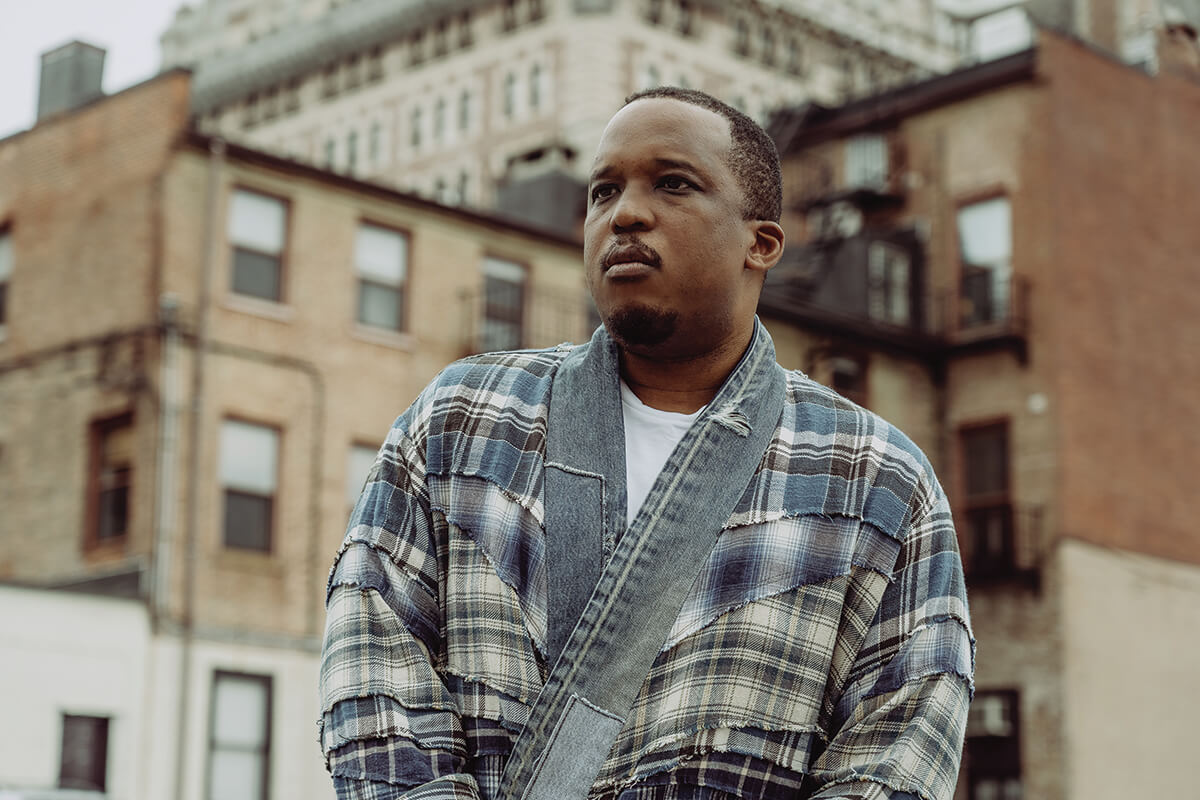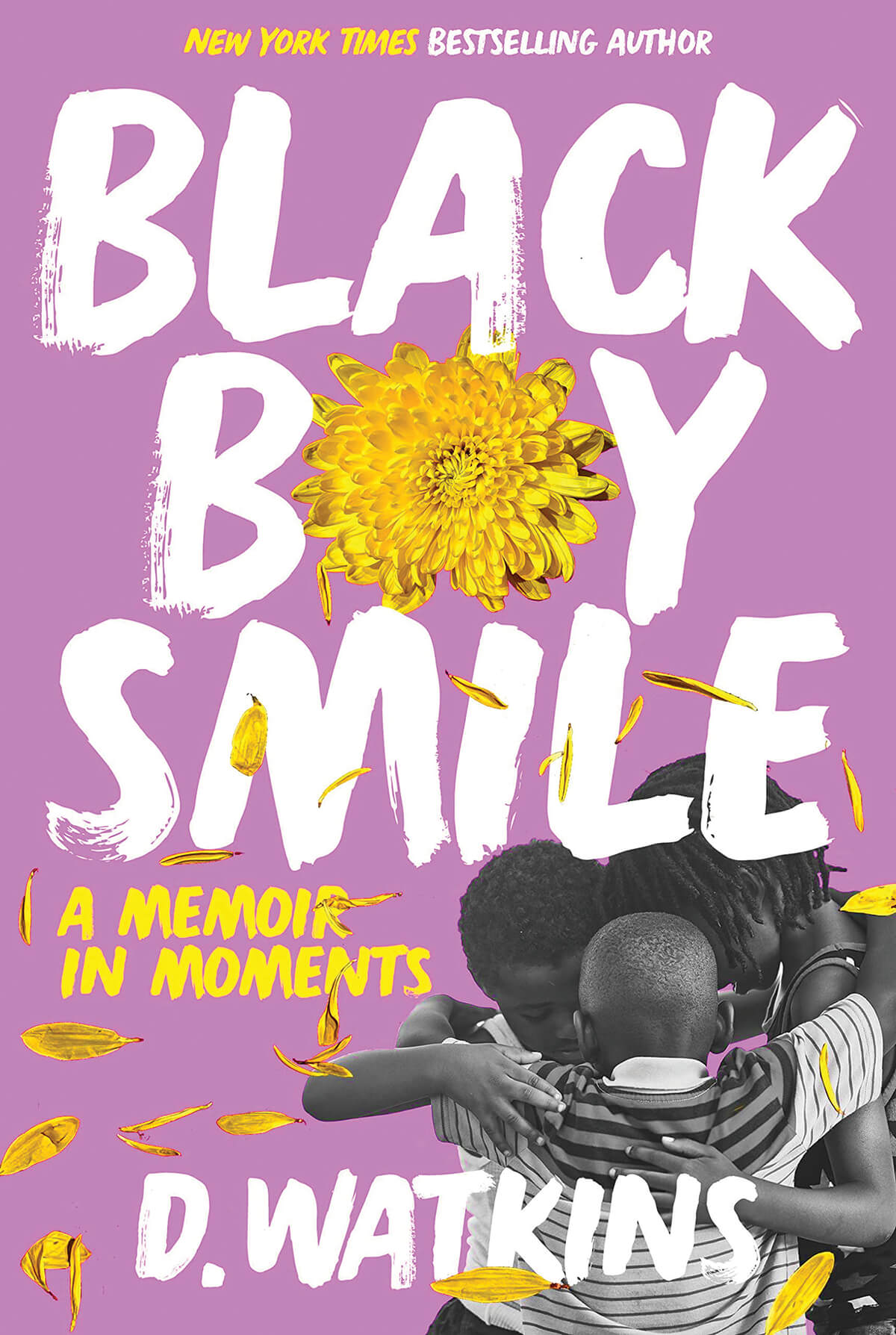Arts & Culture
D. Watkins’ Latest Book Examines The Toxic Masculine Culture in Which He Was Raised
We caught up with the 'New York Times' best-selling author to discuss 'Black Boy Smile,' out now.

New York Times best-selling author D.Watkins, whose works include The Beastside: Living (and Dying) While Black in America, The Cook Up: A Crack Memoir, and We Speak for Ourselves, teaches at The University of Baltimore and serves as an editor-at-large for Salon. He also recently served as a staff writer on the HBO miniseries, We Own This City.
The ever-busy Watkins’ most recent memoir, Black Boy Smile, published in May by Legacy Lit, plumbs his childhood and coming-of-age experiences in tough East Baltimore. A financially successful and occasionally violent drug dealer before leaving “the game” in his mid-20s to pursue a college education—toward what purpose he wasn’t sure at the time—Watkins unpacks his childhood trauma and struggles to form healthy relationships as a Black man. Black Boy Smile is a personal examination of the toxic masculine culture in which he was raised, but aspects of his story will resonate with far too many men, who’ve long been taught to bury their secrets and pain.
We sat down with Watkins to discuss the book, healing from trauma, and literature’s lasting impact.
The title echoes Richard Wright’s acclaimed memoir Black Boy, which describes his youth in the Deep South and moving to become a writer in Chicago.
Yes and no. Yes, Richard Wright has been an extremely big influence of mine. I love Black Boy. But photographer Gordon Parks also has this quote, which I love, about being able to make it to the autumn [of your life] and still have a smile on your face, and what a blessing that is—so the title is kind of both those things.

You write a lot about your relationship with your father, which was strained at times. But ultimately, knowing you like we do in Baltimore—it seems like you take after him, in terms of your fun-loving nature, and storytelling of course. Is that fair to say?
Yeah. It’s hard now because he’s been sick, but he recently made it to Red Emma’s for a reading. When he comes into the room, people still expect him to make them feel better. That’s his personality. He was always a talker and always had a lesson to pull from a story. But as far as being a storyteller, the structure of telling stories, that’s not really him. I picked that up from older guys on the corner.
You bravely describe being sexually abused by an older woman and its long-term effects. Do you think more boys experience sexual abuse, by a man or woman, than they ever let on?
I think it’s not an unusual thing, and I think almost instantly you know that you’re going to hold that inside, and poke out your chest and pretend nothing is wrong. How do you even deal with something you’re going though that’s so terrifying that you’re afraid to cry?
Relatedly, how do we help break down the crisis of toxic masculinity that gets taught to so many young boys?
Already because of this book, I’ve had people tell me they’ve started to talk about their experiences and they’re having conversations about their trauma—without demonizing any gender. What we’re talking about is stigma, and how stigma works, and what healing from that looks like. In our communities and families [in East and West Baltimore], we have a lot of secrets. We have a lot of secrets and it’s dangerous.
You write about being handed Sister Souljah’s book, The Coldest Winter Ever, in the hospital and that it changed your life. Today, you donate a lot of your books to Baltimore public schools and spend a lot of your time there. Can you put those two things together for us?
They’re very connected because a light went off inside of my head when I read that book. For the first time in my life, a book made me feel like I actually meant something to someone and that maybe my story was worth telling. I’d felt worthless for so long, in that defeating way when you’re looking at society as a whole and believe nobody cares about you. That changed because of that book. And so if it changed me, I know for sure that books have the power to change other people.